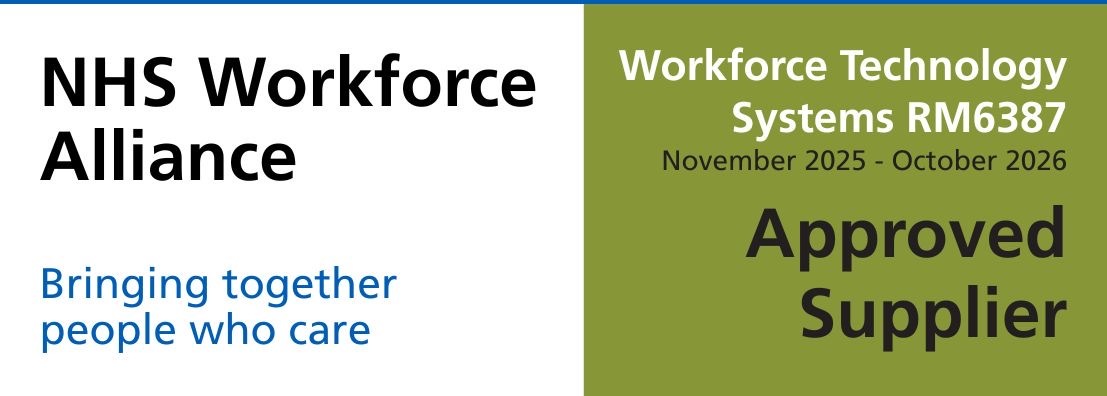
Blog by Flexzo
Why Using Agencies as a Short-Term Fix Creates Long-Term Staffing Problems
In hospitals and clinics across the NHS, staffing gaps can appear with little warning. A last-minute sickness, an unexpected resignation, or a sudden increase in patient numbers can all create immediate staffing needs. In these situations, agency staff often seem like the perfect quick solution – they can be brought in quickly, need minimal introduction to the workplace, and leave once the immediate need has passed.
But what starts as a short-term solution can gradually create serious long-term problems for NHS Trusts. Let’s explore how this happens and what healthcare organisations can do to break this harmful cycle.
How Occasional Use Becomes Dependency
Most Trusts don’t plan to become heavily reliant on agency staff. The journey typically starts with occasional, genuinely urgent needs.
The Path to Regular Use
A department experiences an unexpected staffing gap and turns to agency staff as a temporary measure. The experience seems positive – the shift is covered, patient care continues, and the immediate problem is solved. This success makes it more likely that agency staff will be the first solution considered next time.
Over time, what began as an emergency option gradually becomes standard practice. Before long, what was meant to be a rare exception becomes part of the regular staffing approach, with agencies filling predictable gaps in the rota.
Growing Budget Problems
Financial controls often loosen during an emergency. When a ward is dangerously understaffed, few managers would hesitate to approve agency spending, regardless of cost. This makes sense in a genuine crisis, but as agency use becomes more routine, these higher costs become embedded in normal operations.
Many Trusts find that their agency spending has grown from a tiny percentage of their staffing budget to a significant portion, often without any conscious decision to increase this allocation. This budget growth happens so gradually that it can go unnoticed until it becomes a major financial issue.
The Self-Reinforcing Staffing Cycle
Perhaps the most damaging long-term effect is the self-reinforcing cycle that agency dependence creates in staffing.
Making Permanent Recruitment Harder
Heavy reliance on agency staff can signal to potential permanent employees that a Trust has staffing issues. This perception can make recruitment harder, as candidates may worry about excessive workloads or poor workplace culture.
At the same time, the immediate availability of agency staff can reduce the urgency around permanent recruitment. Why rush to fill a vacancy when agency staff can cover the gap? This reduced urgency can lead to permanent positions remaining unfilled for longer, extending the need for agency cover.
The Retention Problem
For permanent staff, seeing agency colleagues earn significantly more for similar work can damage morale and increase turnover. This is especially challenging when permanent staff are asked to train or support temporary colleagues who are being paid at higher rates.
When permanent staff leave to become agency workers themselves, the Trust faces a double cost – losing an experienced team member and then potentially paying more to bring them back as an agency worker.
The Hidden Costs That Add Up
Beyond the direct financial impact, there are less visible operational costs that compound over time.
Planning Becomes Nearly Impossible
Long-term workforce planning becomes increasingly difficult when a significant portion of the workforce changes constantly. Planning skill development, career progression, and succession for key roles all become more challenging.
This planning difficulty can lead to reactive rather than proactive management. Instead of developing staff to meet future needs, managers find themselves constantly dealing with immediate staffing gaps.
The Administrative Burden Grows
Each agency placement requires checking qualifications, verifying right-to-work documentation, and confirming professional registration. For Trusts using multiple agencies, this verification process is often duplicated, creating unnecessary administrative work.
Over time, this compliance overhead grows as more shifts are covered by agency staff, diverting resources away from other important tasks. What begins as occasional paperwork can grow into a significant operational burden requiring dedicated staff time.
How Care Quality Suffers
While many agency staff are highly skilled professionals, the constant rotation of temporary workers can affect care quality in subtle but important ways.
Reduced Continuity of Care
Continuity of care is a key component of quality, especially for patients with complex or long-term conditions. When staff change frequently, subtle changes in a patient’s condition may be missed, and patients must repeatedly explain their history and preferences to new caregivers.
This lack of continuity doesn’t just affect the patient experience – it can impact clinical outcomes. Research has shown that greater continuity of care is associated with lower mortality rates, fewer emergency admissions, and better management of long-term conditions.
Team Performance Declines
Healthcare is delivered by teams, not individuals. High-performing teams develop shared understanding, efficient communication patterns, and mutual trust over time. When team membership constantly changes, these team dynamics never fully develop.
This can lead to reduced efficiency, increased risk of communication errors, and a poorer overall work environment. While these effects may be subtle, they compound over time and can significantly impact both staff wellbeing and patient care.
Finding a Way Forward
The good news is that NHS Trusts can break this cycle of agency dependence with the right approach.
Planning for the Future
Moving from reactive to proactive staffing starts with better workforce planning. This means looking beyond immediate gaps to understand long-term staffing needs based on expected service demands, retirement patterns, and career progression.
Trusts that invest in detailed workforce planning can anticipate gaps before they become urgent, allowing for more measured recruitment approaches that don’t rely on last-minute agency cover.
Creating Flexibility Within Your Organisation
Many healthcare professionals choose agency work for the flexibility it offers. Finding ways to build more flexibility into permanent roles can make them more attractive to these staff.
Innovative approaches include internal staff banks, self-rostering systems, and annualised hours contracts. These models give staff more control over their working patterns while maintaining the benefits of permanent employment and reducing the need for external agency workers.
Working Together Rather Than Competing
Individual Trusts often find themselves competing for the same pool of staff, driving up costs for everyone. Collaborative approaches like shared banks allow Trusts to work together rather than against each other.
Technology platforms show how this collaborative approach can work effectively. By connecting healthcare professionals directly with multiple NHS organisations through a shared platform, they eliminate many of the problems associated with traditional agency use.
This collaborative model offers consistent compliance standards, reduced administrative work, and better continuity as staff work regularly within a network of local organisations. For healthcare professionals, it provides the flexibility they want without the downsides of traditional agency work, such as uncertainty about future shifts or constantly changing work environments.
Building a Sustainable Future
Moving away from over-reliance on agencies doesn’t mean eliminating all flexible staffing. In fact, a well-designed workforce strategy includes both permanent staff and flexible workers who can respond to changing demands.
The key is ensuring that this flexible component works for both the organisation and the staff, without the high costs and operational challenges associated with traditional agency models.
By combining better workforce planning with innovative approaches to flexible staffing, NHS Trusts can create a more sustainable model that delivers quality care without breaking the bank. This balanced approach recognises that while agencies may sometimes be necessary for genuine emergencies, they shouldn’t become the default solution for routine staffing needs.
Introducing Flexzo Ai
Flexzo Ai’s collaborative staff bank offers a direct solution to the problems of agency dependence. Unlike traditional agencies, Flexzo Ai connects NHS Trusts and healthcare professionals directly through a shared platform, eliminating the middleman approach that drives up costs.
Our platform works by:
- Eliminating agency fees – Trusts pay less while professionals can earn more through direct connections without markups
- Simplifying compliance – Documents are uploaded once and automatically tracked, with expiry reminders sent to professionals
- Using smart matching – AI technology connects the right professionals to shifts based on qualifications, location and availability
- Improving continuity – Professionals work regularly with the same Trusts, becoming familiar with departments and processes
- Offering genuine flexibility – Healthcare professionals control when and where they work while maintaining a steady flow of opportunities
For NHS Trusts, this means lower costs, better planning capabilities, reduced administrative work, and improved continuity of care.
For healthcare professionals, it provides the flexibility of agency work without the uncertainty, along with potentially higher pay rates as agency fees are eliminated.
Get in Touch
If your organisation is looking to regain control of your workforce while still maintaining necessary flexibility, Flexzo Ai’s collaborative staff bank could provide the solution you need.
By bringing together the best aspects of permanent staffing control with flexible working patterns, Flexzo Ai helps NHS Trusts build a more sustainable, controllable staffing model.
Contact the Flexzo Ai team to learn how this approach could work for you.






